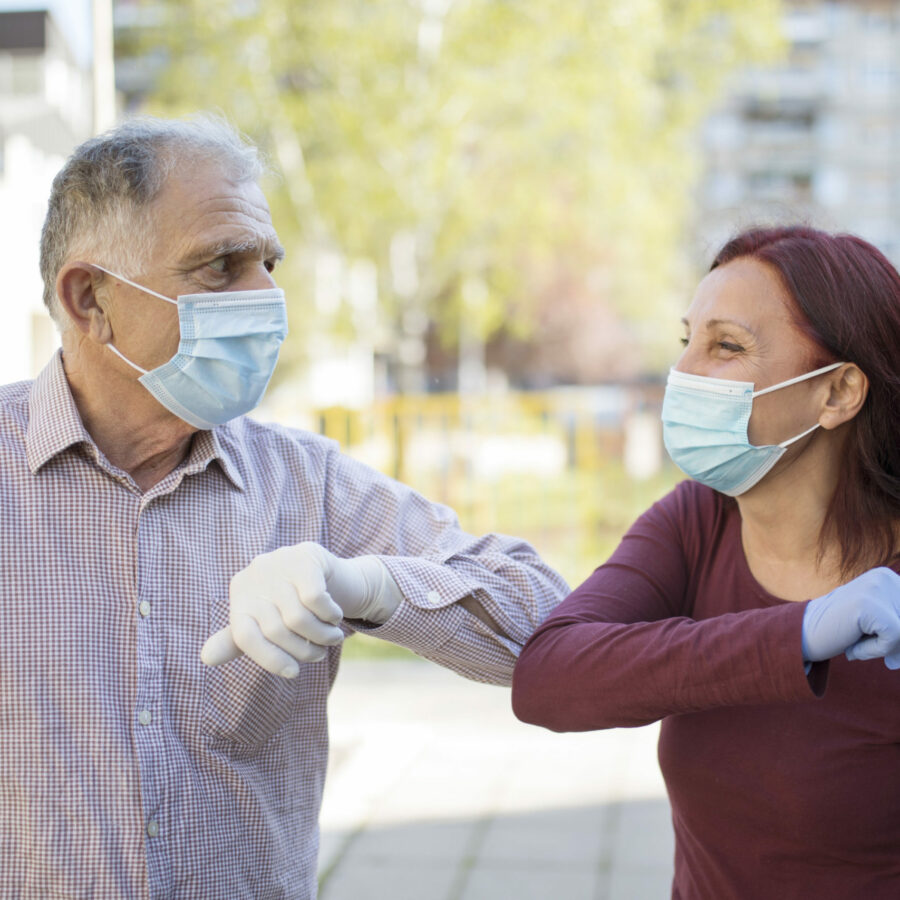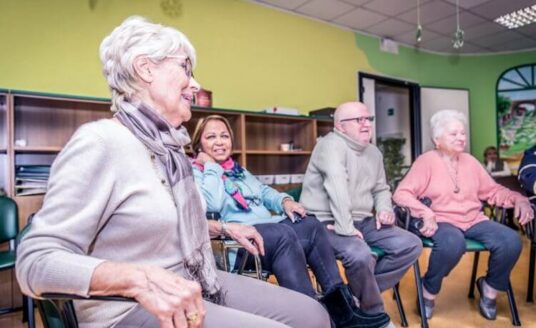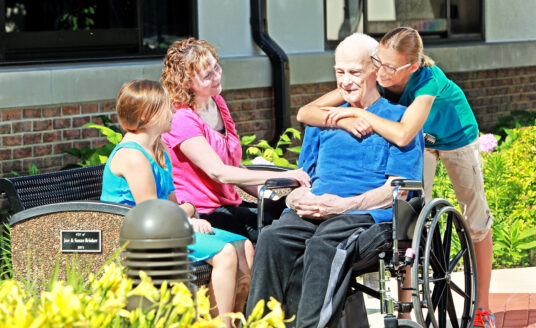When it comes to COVID-19, we know the stakes are far higher for senior adults, particularly those who have underlying chronic health conditions. According to the Centers for Disease Control and Prevention (CDC), eight out of 10 deaths attributed to the virus in the U.S. have been adults 65 years old and older. Yet after weeks or months of self-isolation, some seniors may begin to waver in their commitment to the physical and emotional challenges of remaining in their homes.
You may have impressed on your senior loved one the necessity for social distancing and staying home. Now, most states are loosening their restrictions, and news reports show people on beaches, in bars, and strolling streets in groups with few wearing masks. Those shown are usually younger than 65 and seem unconcerned about contracting the virus or spreading it to others who may be more vulnerable to its effects.
How do you stress the continued isolation of your senior when so many people, including political leaders, are advocating reopening despite no adequate testing to track the extent of COVID-19, no proven treatment, and the expectation that a vaccine is still many months away?
The Enemy You Can’t See
People are much better at confronting a crisis that is tangible and immediate. Obviously, the virus is too small to see with the naked eye. It may take several days for symptoms to become evident, and asymptomatic people can be contagious. So in theory what is occurring in late May, for example, could not begin showing up in terms of a surge of COVID-19 cases until June.
For people, particularly seniors, to get a handle on the current reality and not become overwhelmed requires dealing with emotions and facts, and receiving family support.
Loss of Control
The fear and uncertainty COVID-19 creates can erode the will. In fact, some experts believe that the constant sharing of bad news may lead people to choose to defy health recommendations in an attempt to regain some control they feel they have lost.
The best strategy may be to keep seniors informed about COVID-19 in their region, but then pivot to topics about the things that make living worthwhile—their interests, hobbies, favorite memories, accomplishments—that are sources of strength, optimism, and hope.
Gaining Control
It should be emphasized to seniors that the best way to exert control over their lives is to continue to practice social distancing and handwashing, and to maintain an adequate supply of food and medications, preferably using delivery services that will bring them to the home.
Encourage them to care for themselves through diet and exercise, and to take medications as prescribed.
Family members should contact their senior loved one regularly. Also help them arrange deliveries of groceries and medications, and ask them to share how they feel physically and emotionally. Have an arranged drive-by time to check in with your senior, and talk in an outside-on-the-porch or backyard conversation.
You could also deliver books, crossword puzzles, craft supplies, plants and other items that assist them in following their hobbies and interests.
As a family member, you hold the key to keeping them engaged by frequently contacting them, seeing to their needs, and showing your interest in their welfare, as well as demonstrating by example how you are protecting yourself. By showing your concern, you are telling your senior loved one that he or she is a treasured part of your life and the lives of other family members. Resolve is strengthened when seniors are reminded of their value to loved ones.
For more tips and guidance, check out our Caregiver Tips section to ensure you’re keeping your loved ones safe.
Back to All Posts




